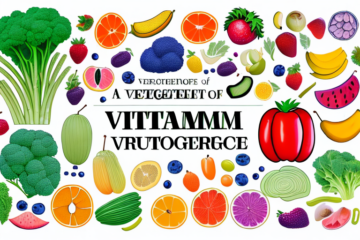In the world of agriculture and horticulture, the importance of micronutrients cannot be overstated. These essential nutrients play a vital role in the growth and development of plants, ensuring that they have everything they need to thrive. One such micronutrient that has gained increasing attention in recent years is Boron.
What is Boron and Why is it Important?
Boron is a chemical element that is found in the earth’s crust and in many foods. In plants, it is classified as a micronutrient, which means that it is required in relatively small amounts, but is still critical for proper plant growth and development. Boron plays a crucial role in many plant functions, including cell wall formation, carbohydrate metabolism, and pollination.
Aside from its importance in plant growth, boron also has various industrial applications. It is used in the production of glass, ceramics, and detergents. Boron is also used in nuclear reactors as a neutron absorber, and in the aerospace industry as a component of high-strength materials.
However, excessive boron exposure can be harmful to both plants and humans. In plants, high levels of boron can lead to toxicity, causing stunted growth and reduced crop yields. In humans, boron toxicity can cause skin irritation, nausea, and vomiting. Therefore, it is important to maintain a balance of boron intake to ensure its benefits without any negative effects.
The Role of Boron in Plant Growth and Development
When discussing the importance of Boron, it is essential to understand the vital role it plays in plant growth and development. It is involved in the formation of cell walls, which provide structure and support for the plant. Without adequate levels of Boron, plants may grow poorly and have weaker cell walls that are more prone to damage and disease.
Boron also plays a crucial role in plant reproduction. It is essential for the successful process of pollination and the development of seeds. When Boron levels are inadequate, plants may exhibit reduced flowering and stunted growth, which can lead to decreased crop yields.
In addition to its role in cell wall formation and plant reproduction, Boron also plays a critical role in the metabolism of carbohydrates and other essential nutrients. It helps regulate the transport of sugars and other nutrients throughout the plant, ensuring that they are distributed evenly and efficiently. This is particularly important during times of stress, such as drought or extreme temperatures, when plants may struggle to absorb and transport nutrients effectively.
How Boron Affects Soil Nutrient Availability
Boron has a unique way of interacting with soil nutrients. It can make other micronutrients, such as copper and iron, more available to plants. Additionally, Boron helps to regulate the pH levels in the soil, ensuring that it is optimal for plant growth.
However, excessive amounts of Boron can be toxic to plants and can lead to stunted growth and reduced yields. It is important to maintain the right balance of Boron in the soil to ensure healthy plant growth. Soil testing can help determine the appropriate amount of Boron needed for specific crops and soil types. Farmers can also use Boron fertilizers to supplement the soil with this essential micronutrient.
Symptoms of Boron Deficiency in Plants
Boron deficiency in plants can lead to many visible symptoms that are indicative of a problem. These symptoms can vary depending on the crop and severity of the deficiency. Some common symptoms of Boron deficiency in plants include stunted growth, brittle or cracked stems, and yellowing leaves. Additionally, Boron deficiency can cause reduced flowering or fruit development in certain crops.
Another symptom of Boron deficiency in plants is the development of brown spots on leaves, which can eventually lead to leaf drop. In some cases, Boron deficiency can also cause the death of the growing tip of the plant, leading to a bushy appearance.
It is important to note that Boron deficiency can be easily mistaken for other nutrient deficiencies, such as calcium or magnesium. Therefore, it is important to conduct a soil test to accurately diagnose the deficiency and determine the appropriate treatment.
The Benefits of Adding Boron to Your Garden or Farm
Adding Boron to your garden or farm can provide many benefits that will help to ensure the health and growth of your plants. It is particularly essential for crops that are sensitive to Boron deficiency, such as almonds, grapes, and apples.
Some benefits of adding Boron include increased yield, improved crop quality, and enhanced pollination. Additionally, Boron can help to improve soil structure and fertility, leading to healthier and more resilient plants.
Another benefit of adding Boron to your garden or farm is that it can help to prevent certain plant diseases. Boron plays a crucial role in strengthening cell walls, which can make plants more resistant to fungal and bacterial infections. This can ultimately lead to a reduction in the need for chemical pesticides and fungicides, making your garden or farm more environmentally friendly.
Sources of Boron for Plants: Natural and Synthetic Options
There are many sources of Boron for plants, but not all of them are created equal. Natural sources of Boron include compost, manure, and rock dust. Synthetic options include Borax and Solubor. When choosing a source of Boron, it is essential to consider the quality and purity of the product, as well as its suitability for the specific crop.
It is important to note that the amount of Boron required by plants varies depending on the species and stage of growth. While some crops require only small amounts of Boron, others may require higher concentrations. Additionally, excessive amounts of Boron can be toxic to plants, leading to stunted growth and reduced yields. Therefore, it is crucial to carefully monitor the Boron levels in the soil and adjust the application rates accordingly.
Factors Affecting Boron Uptake in Plants
There are many factors that can affect the uptake of Boron in plants. These can include soil pH levels, soil type and texture, and the stage of plant growth. Additionally, excessive levels of other micronutrients, such as molybdenum and copper, can interfere with Boron uptake in plants.
Furthermore, environmental factors such as temperature and water availability can also impact Boron uptake in plants. High temperatures can increase the demand for Boron, while water stress can reduce its uptake. In addition, the presence of certain soil microorganisms can enhance or inhibit Boron uptake in plants, depending on the type of microorganism and the plant species.
Understanding the Optimal Levels of Boron for Different Crops
The optimal levels of Boron can vary depending on the crop and growing conditions. Typically, crops that are sensitive to Boron deficiency, such as almonds and grapes, require higher amounts of the nutrient than other crops. To determine the optimal levels for your specific crop, it is essential to consult with a soil analysis professional or agricultural extension agent.
It is important to note that while Boron is essential for plant growth, excessive amounts can be toxic and lead to plant damage. Therefore, it is crucial to monitor the levels of Boron in the soil and adjust accordingly. Additionally, the timing and method of Boron application can also impact its effectiveness. For example, foliar application may be more effective for some crops than soil application. Consulting with a knowledgeable expert can help ensure that your crops receive the optimal levels of Boron for healthy growth and maximum yield.
How to Correct Boron Deficiency in Soil and Plants
If your plants are exhibiting symptoms of Boron deficiency, it is essential to take action quickly to correct the problem. One effective way to correct Boron deficiency is to apply a high-quality Boron fertilizer to the soil. Additionally, you can incorporate organic matter, such as compost and manure, into the soil to help improve the levels of Boron and other micronutrients.
It is also important to note that over-application of Boron fertilizer can be harmful to plants and soil. Therefore, it is recommended to conduct a soil test to determine the current levels of Boron in the soil before applying any fertilizer. This will help you to determine the appropriate amount of fertilizer to apply and avoid any potential harm to your plants and soil.
Common Misconceptions About Using Boron in Agriculture
Like all agricultural practices, there are many misconceptions about using Boron in agriculture. One common misconception is that adding more Boron than necessary will lead to higher crop yields. However, excessive amounts of Boron can lead to toxicity in plants and reduced crop yields. It is essential to follow recommended rates and apply Boron only when necessary.
Another common misconception is that Boron is only necessary for certain crops. In reality, Boron is essential for the growth and development of all plants. It plays a crucial role in cell wall formation, pollen tube growth, and fruit development. Without adequate Boron, plants may experience stunted growth, poor fruit quality, and reduced yields. Therefore, it is important to ensure that all crops receive sufficient amounts of Boron to promote healthy growth and maximize yields.
Potential Risks Associated with Excessive Use of Boron in Agriculture
While Boron is essential for plant growth and development, excessive use can lead to potential risks. Excess Boron can lead to the accumulation of toxic levels in the soil, which can lead to reduced crop yields and can even render the soil unusable for future plantings.
In addition to the negative effects on soil and crop yields, excessive use of Boron in agriculture can also have negative impacts on the environment. When Boron is applied in excess, it can leach into groundwater and surface water, leading to contamination of water sources. This can have harmful effects on aquatic life and can also pose a risk to human health if the contaminated water is consumed.
Furthermore, excessive use of Boron can also have economic impacts on farmers. If soil becomes unusable due to high levels of Boron, farmers may need to invest in costly soil remediation measures or even abandon the land altogether. Additionally, reduced crop yields can lead to financial losses for farmers who rely on their crops for income.
Conclusion: The Importance of Balancing Micronutrients including Boron
To ensure the proper growth and development of plants, it is essential to consider the balance of micronutrients, including Boron. While it may be tempting to focus solely on macronutrients, such as nitrogen and phosphorus, plants require precise amounts of micronutrients to thrive. Maintaining a balanced supply of micronutrients can lead to healthier plants, increased crop yields, and improved soil health.
In summary, Boron is a critical micronutrient that plays a vital role in plant growth and development. Understanding the proper levels of Boron, its role in soil nutrient availability, and its potential risks and benefits can help to ensure that your crops are healthy and thriving for years to come.
It is important to note that while Boron is essential for plant growth, too much of it can be harmful. Over-application of Boron can lead to toxicity, which can cause stunted growth, leaf damage, and even plant death. Therefore, it is crucial to monitor soil levels and apply Boron in appropriate amounts. Additionally, it is important to note that different plant species have varying requirements for Boron, so it is essential to research and understand the specific needs of the crops you are growing.










